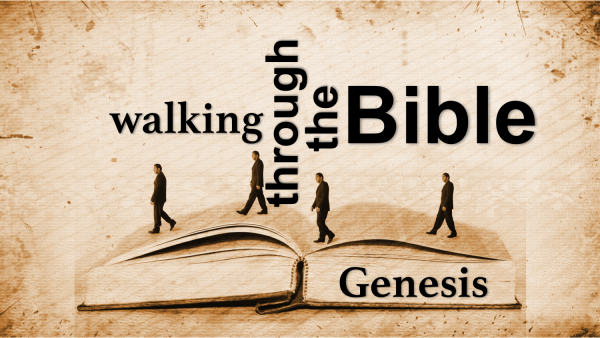Moses, though authored by the Spirit of God, penned Genesis in all likelihood between 1440-1400 B.C. It records events from the creation of the heavens and the earth, in approximately 4004 B.C., to the death of Joseph in Egypt, around the mid-1500s B.C., meaning it covers a span of about 2,500 years (dates according to Ussher). When understanding that the rest of the Old Testament combined records only about 1,500 years the wonder of Genesis begins to unfold. It records some of the most important events in history (including the flood, the call of Abraham, the promise to Isaac, and Jacob’s family in Egypt) and covers more time than any other book ever, but its detail is of such nature as to provide adequate information for man’s understanding. Surely this is not the work of any man as many “scholars” would claim, attempting to discredit its factual account of creation and the Noahic flood to support the dangerous theory of evolution, but truly it is inspired of God (II Timothy 3:16).
The theme of Genesis has properly been said to be man’s relationship with God (Dunn). God had created man to serve Him in unending bliss in the paradise of Eden, but when man failed God, the Lord then began the chain of events that would allow man to serve Him in unending bliss in the paradise of Heaven (Genesis 2:1-3:15). However, not only does it records the general relationship of man to God, but Genesis goes on to record specific men and how they individually related to God.
The means through which man knew God’s will and performed it was through a patriarchal system. The patriarchs were set up in two categories in the book of Genesis: antediluvian and post-diluvium. The antediluvian patriarchs, those before the flood, consisted of all those named in the genealogical record of Genesis 5, from Adam to Noah and are noted for their long spans of life. The post-diluvium patriarchs, those after the flood, consisted of all men from Noah’s sons until the Mosaic law was given in Exodus 20, but included those famous fathers of the Jews: Abraham, Isaac, and Jacob. As a patriarch, “The father was recognized as both legal and spiritual head of the family. Wives and children were dependent upon the father, or patriarch, of the family, who also served as its governor, priest, and magistrate. The family, including its slaves, was subject to the patriarch, who represented the sole authority, under God” (Pfeiffer).
Having been written in the course of the forty year wilderness wandering just before entering Canaan, the immediate purpose of this record was to give Israel an account of their national origin and covenant with God, but even more so their origin from creation and their spiritual relationship with God (Dunn). However, outside of its immediate purpose during the time it was written is its purpose unto man today; that is to tell man where he came from and begin to relate how he got to where he is today both socially and spiritually. There is much to be learned from how events transpired either for the good or bad of the people in Genesis and how mankind can, but sadly has not, learn from those examples and made more spiritually educated decisions.
Perhaps the most important part of every book of the Bible is how Christ is pictured in that book because He is in every one; and in Genesis He is pictured as a promise. In Genesis 3:15 He is the promised seed of woman; in Genesis 22:18 He is the promised seed of Abraham to bless all nations; and in Genesis 49:10 He is the promised Shiloh who would come through the tribe of Judah. The book of Genesis, from its antiquity, has been of the utmost importance to all mankind for his learning and understanding. May this great book never be considered without value but always be a priceless tool that students of the Bible, until the end of time, investigate with interest and desire.
-Andy Brewer

